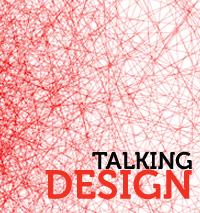Talking Design is produced by experienced writer Stephen Crafti and sponsored by RMIT.
Mr Crafti writes regularly on design for publications including The Age, The Sydney Morning Herald, and The Australian Financial Review, as well Indesign and Habitus magazines. He has also written more than 30 books on architecture and design.
"I'm interested in speaking to a host of designers from a broad range of design disciplines," Mr Crafti said.
"There are so many connections between the various design areas.
"RMIT is renowned as a global university of technology and design and this new podcast series is a perfect fit with the University's expertise."
Talking Design follows the successful launch of the Talking Business podcast series last year, sponsored by RMIT's College of Business.
Ian Wong
Robert Simeoni
Nixon, Tulloch and Fortey
Jarrod Haberfield
Michael Howard
Melanie Katsalidis
Chris Rack
Amy Muir
Johanna Preston
Suzanne Davies
Andrew Parr
Piero Gesualdi
Debbie Ryan
Stewart Russell
Professor Margaret Gardner
Tim O’Sullivan and Sioux Clark
Robyn Healy
Roger Leong

















































